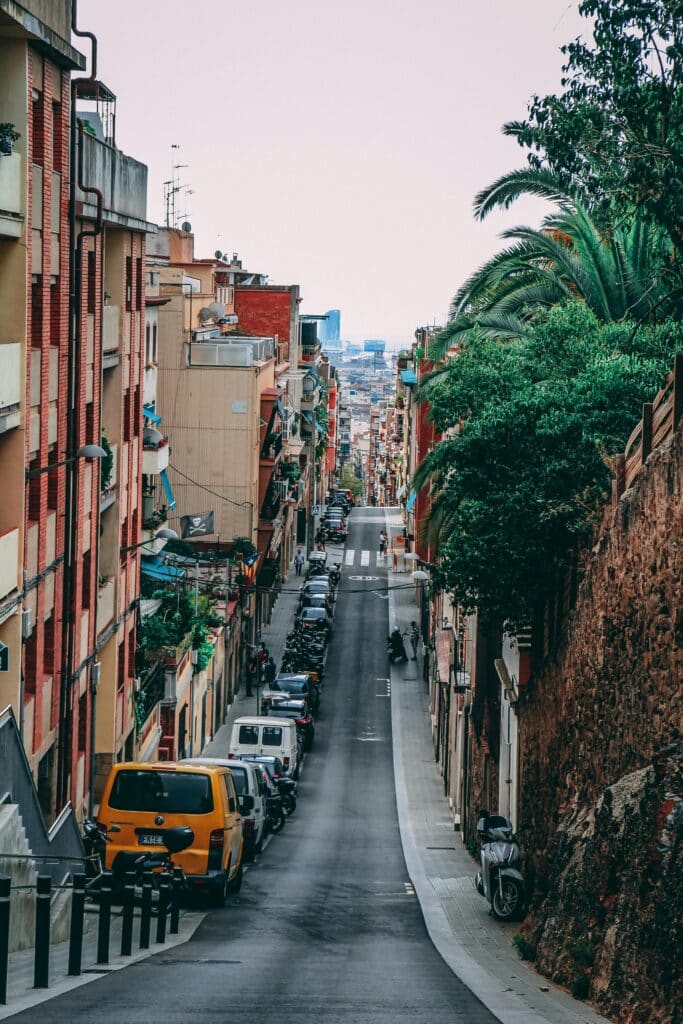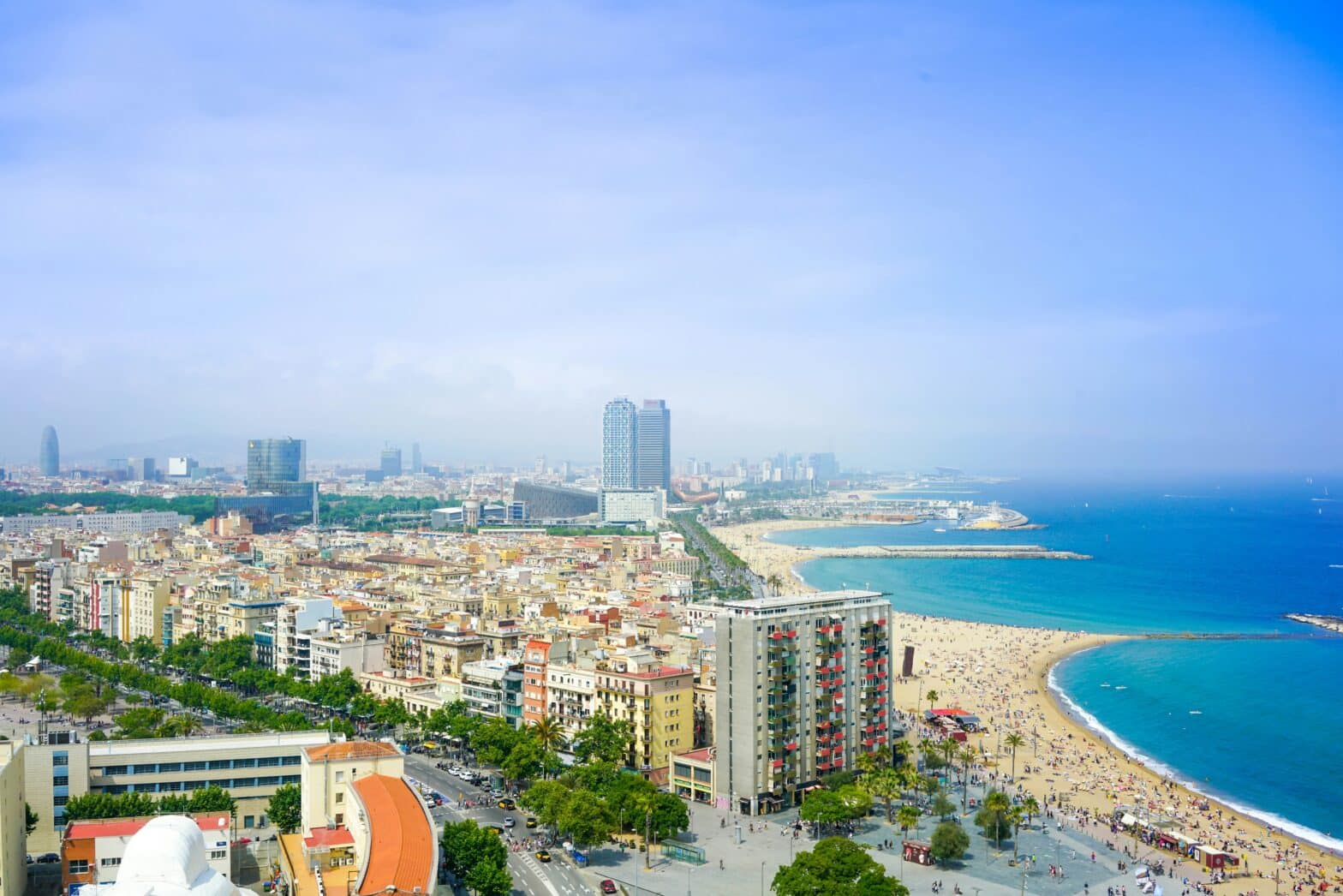Ready to drop anchor on the Costa Brava? One of Europe’s most cosmopolitan cities, Barcelona has attracted tens of thousands of expatriates, who make up nearly 20% of the population in some areas. And for good reason: replete with dynamic culture, an excellent quality of life and a thriving economy, the festive city of Barna has become a chosen haven for expatriates from all over the world. Foyer Global Health offers a guide to ease your relocation to Barcelona!
Living in Barcelona: pros and cons?
The advantages:
- A vibrant, multicultural environment
- Life is cheaper here than in other European cities such as London or Paris
- An agreeable climate featuring plenty of sunshine
- A gorgeous coastline
- A rich cultural heritage
- A foodies’ paradise
The disadvantages:
- Hordes of tourists!
- Barcelona’s administration is very slow
- Lots of noise, especially in the tourist areas
- A fairly high cost of living compared to other Spanish cities, especially for property
- The language barrier: proficiency in Spanish is recommended for working in Barcelona; learning Catalan is essential to fit in!
Barcelona versus Valencia
While Valencia is cheaper and smaller than Barcelona, and offers a more relaxed lifestyle, Barna offers more cultural and professional opportunities than ‘la Terreta’.
Barcelona versus Madrid
The Spanish capital, like its Catalan sister, is very dynamic and boasts a diverse cultural heritage, but Barcelona is much more multicultural and has a better climate.
Barcelona versus Lisbon
Although the weather in Barcelona, like in Lisbon, is pleasant and sunny, and the cost of living in the Portuguese capital is lower than in the Catalan metropolis. On the other hand, Barcelona is more multicultural and boasts richer and more diverse cultural and artistic possibilities than Lisbon.
Barcelona versus London
The British capital and Barcelona are both dynamic multicultural cities, offering a richness of culture, history and excellent professional opportunities. But in comparing the two, life in Catalonia is more relaxed and offers more days in the sun than in London!
Finding accommodation in Barcelona
Barcelona’s runaway success with expatriates and tourists has contributed to drive up the price of accommodation for both short and long-term rentals. The price per square metre for rentals has reached €20.8. For example, a one-bedroom flat in the city centre costs between €850 and €1,500 per month, depending on the district and the property.
Overall, the property market is very buoyant, with a wide variety of properties available for both rent and purchase, including studios, flats and villas. If modern living is your thing, you may like the large residential complexes that have changed the face of the city through urban development projects.
It’s best to start looking for your dream home as soon as you arrive. Start by renting for a short period to give you time to explore the city and get a better idea of the area that best suits your needs and preferences. You can browse the classifieds on websites such as Idealista or Habitaclia, contact estate agents or rely on your own network.
You will need an NIE (Foreigner Identity Number) and a Spanish bank account of which both are required to rent accommodation.

What are the best areas for expats?
Many expatriate families choose to live in l’Eixample, a large, lively and pleasant district right in the centre of the city, with easy access to the old town and the sea. Equally pleasant and lively are Pablenou and Sant Gervasi-Galvany.
The upmarket residential district of Pedralbes, to the west of the city, is also very popular with expat families, with its beautiful houses and peaceful gardens. Some choose to live on the outskirts of the city, or in neighbouring provincial towns such as Sitges.
If you’re more of an urban soul, you can settle down in the city’s central districts, either as a couple or on your own, such as El Raval or El Born, both very multicultural and trendy areas, or Gracia, a lively and popular district for urbanites. If you want to be as close to the sea as possible, drop anchor in Barceloneta, one of Barcelona’s most emblematic districts.
For a lifestyle that’s both exclusive and relaxed, head to the ‘Zona Alta‘, one of Barcelona’s most luxurious residential areas, where impressive villas rub shoulders with top-notch schools as well as healthcare and sporting facilities.
Daily life in Barcelona
Cost of living
The cost of living in Barcelona is relatively low compared with other European cities such as Paris or London, but it is still quite expensive compared to other Spanish cities, especially when it comes to accommodation and leisure activities. In fact, the cost of living in the Catalan capital has risen significantly over the last decade, particularly in the property market, where rents have risen by 88% over that period of time. For example, a three-bedroom apartment in the city centre costs around €2,100. Monthly charges for water, electricity and gas are about €150, and a gym membership costs an average of €45 a month.
Getting around Barcelona
Barcelona’s public transport system (bus, train, tram and metro) is modern, reliable and quite cheap. It is undoubtedly the most practical way to get around the city, and even the provinces. If you’re planning to move to Barcelona, don’t forget to get the T-mobilitat, an electronic ticketing system that makes it easy to get around. Cycling is also an option if you work and live in the city centre.
Parles Catala?
Barcelona is Catalan before it is Spanish, and although Castilian is spoken here, it is still the second language. It is possible to live in Barcelona without speaking Spanish, if you make the effort to learn… Catalan!
Many administrative formalities can now be carried out in English, but it’s still important to learn Catalan for everyday life. Although Barna is a very cosmopolitan city, learning the language of Dali is a guarantee to better integration into Barcelona society.
The CNPL (Consorci per a la Normalització Lingüística), a Catalan public institution, offers free Catalan courses at all levels for residents of Barcelona. And if you prefer to study the language online from home, please visit Parla.cat !
Working in Barcelona
Barcelona is the economic heart of Catalonia. It offers many job opportunities, particularly in the tourism, e-commerce, marketing, ICT, education, automotive and textile industries.
Unless you choose to work as a freelancer, digital nomad or create your own start-up, a good level of Spanish, or even Catalan, is necessary to work as an employee in a local company. Speaking Catalan is compulsory in public administration and in certain companies dealing with a Catalan-speaking public.
Barcelona is home to many international companies where speaking English will be highly valued, if not required. In fact, the more international the company, the less need to speak Catalan or even Spanish.
The average annual salary in Barcelona is €32,324 and the maximum working week is 40 hours. Depending on the company, it is not uncommon, as in other Spanish cities, to work from 9am to 1.30pm and then, after a long lunch break (and a good siesta!), to resume work around 4pm to 5pm. In summertime, some employees work continuously from 9am to 3pm and then stop.
Barcelona as a family: sending your children to school
Expat parents can choose between state schools, public schools and international public schools for their children, some of which offer French-language tuition. If you are interested in enrolling your kids in Catalan schools, you can consult the list of state, private and semi-private schools in your “zone of influence“, depending on where you live. If you need more information, schools organise open days from January onwards.
Anglophone expats often choose to send their kids to International and English-speaking schools in Barcelona such as St Peter’s School, the British School of Barcelona or Hamelin-Laie International School.
Healthcare in Barcelona
In Barcelona, as in the rest of Spain, the social security system, and in particular public health insurance, provides universal protection for everyone, including expatriates. The Spanish national health system is one of the cheapest and most efficient in Europe.
In Barcelona, you will need to register with CatSalut, the Catalan public health insurance scheme, once you have been registered with the municipal register of inhabitants (padrón). Once you have completed these formalities, you will receive your individual health card (TSI), which will allow you to access the public health services, including the primary health centre (CAP – Centre d’Atenció Primaria) which is allocated according to where you live.
In the event of a medical emergency, you can go to your nearest CAP or hospital, or call 061 (CatSalut Respon) wherever you are in Catalonia.
Barcelona is home to 58 health establishments, 12 of them public and 46 private, some of which are internationally recognized, particularly in the fields of oncology, transplants and advanced surgery.
Barcelona’s top hospitals include Hospital Clínic, Hospital Vall d’Hebron, and Hospital de la Santa Creu i Sant Pau. Other medical institutions such as Centro Médico Teknon, Hospital Sant Joan de Déu (one of the oldest pediatric hospitals in Europe) and Hospital Quirónsalud Barcelona are also highly regarded for the high quality of their medical services.
For greater flexibility and better healthcare coverage in Barcelona and worldwide, many expatriates choose to take out international health insurance.
